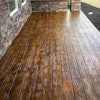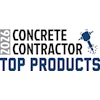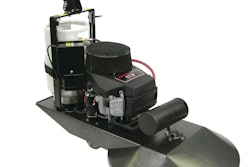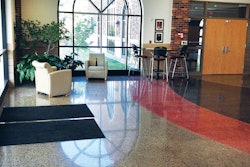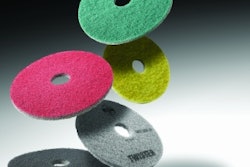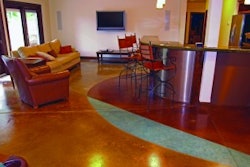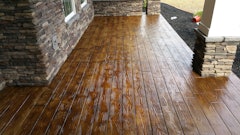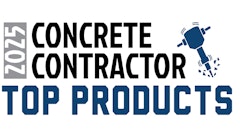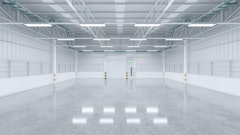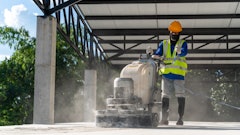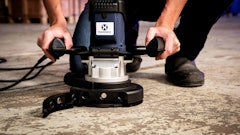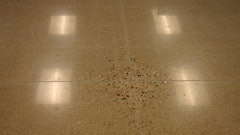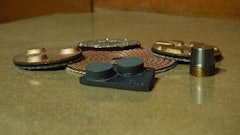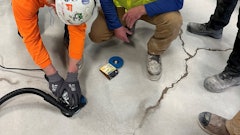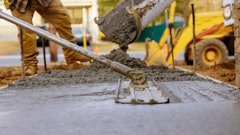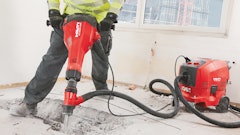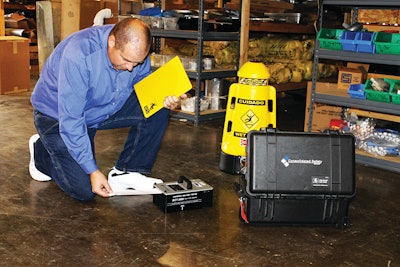
As a contractor, if you are hired to install a concrete floor you know that with any type of installation there comes a risk, not just with the application but with the finished product as well. More than likely, you have seen a new trend in the way you view not only the durability and the beauty of a floor but also the safety of that floor.
This being said, you are in the business of concrete floors, not the complex numbers that reflect your floor's static co-efficiency of friction (SCOF) or the slip resistance of the floor in question. But you should ask yourself, Could I, as the installer of the floor within a facility, be held accountable for the overall safety and performance of the floor once installed? The answer is "most likely" with today's litigious society.
Why be concerned about floor safety?
According to the National Floor Safety Institute (NFSI), nearly 60 percent of all grocery store general liability claims are slip and fall complaints. NFSI also reports that slip and fall accidents in super markets are the leading cause of employee and customer injuries. According to Liberty Mutual, 65 percent of all lost workdays are due to slip and fall accidents; this in turn results in 95 million lost workdays per year.
The National Safety Council (NSC) reports that approximately 25,000 people a day are victims of slip and fall accidents. The bottom line is slip and falls do occur, and they are very common in all areas of life. Even with the best of prevention efforts there will still be incidents that occur, simply because not all slip and falls can be prevented. But there is much we can do to reduce the number of slip and falls reported yearly.
Protect yourself
When a slip and fall occurs, more than likely the victim's attorney will not only include the building owner in the lawsuit but also the maintenance company, the designer of the building and the contractor who put down the floor. And don't be surprised when you see who within that group starts blaming whom -- when it comes to money there is no loyalty. So what can you as the contractor do to protect yourself?
The good news is you do have means of defense if you choose to use it, but it means you need a proactive approach to floor safety. What does it mean to have a proactive approach to floor safety? Think of it in these terms: If an individual slips and falls within a facility where you did the floors and they list you as part of their slip and fall case and you have no documentation or proof that you are not negligent, then anything you do to try and disprove your negligence from that point is reactive not proactive. In other words, you are reacting to the problem after it occurred.
If you had taken steps to show you did all you could do to prevent slip and falls from occurring, and you can show documentation of such, then you were being proactive. And trust me, a person who can show he is proactive and back it up with documentation is going to be less likely to be proven negligent in a legal case involving a slip and fall than someone who is reactive.
There is a solution
One helpful solution is the new ANSI B101.1 standard. Even though it does not mention polished or finished concrete specifically, it does outline a specific test method for measuring the slip resistance value of hard walkway surfaces. This allows you to take a proactive approach and protect yourself and your company by making good use of this standard.
As a consultant and a walkway auditor, my recommendation is after you have completed your floor, hire a competent and certified walkway auditor who is properly trained to perform testing on your now finished floors in accordance with the new ANSI B101.1 Standard. The test results should be well documented and in accordance with the NFSI Walkway Auditing Guidelines. If an incident occurs, you will have documented proof that the floor's static co-efficient of friction meets the ANSI B101.1 Standard for wet floors. By having the floor tested before it was put into use, you are showing that when you completed the floor it met the standard and whatever happened to it afterward to lower the slip resistance is in no way your responsibility, thus removing you from the equation.
Also, stress to your customer the importance of maintaining the floor correctly. Often when a floor is found to be slippery it is due to improper cleaning and maintenance issues.
Even though you may no longer feel responsible for the floor's care after your work is done, you can be sure that if a slip and fall incident occurs your name will come to mind. This being said, work with your customers to establish a proper maintenance program for the floor you installed.
As a contractor you have seen the concrete polishing industry grow into the exciting field it is today. As you have seen the need for insight and knowledge to position your company in this growing field of expertise, it is my hope that you show the same insight when it comes to floor safety on your finished product.
Mike Fraley is president of Consolidated Floor Safety, Inc. and is currently serving on the ANSI B101 Main Committee and the ANSI B101.8 Sub-Committee. Mike is also certified as a NFSI Walkway Safety Auditor and a NFSI Certified Slip and Fall Prevention Specialist. Consolidated Floor Safety offers nationwide onsite walkway auditing, documented floor safety programs. Contact Mike at [email protected] or 888-818-9038.
